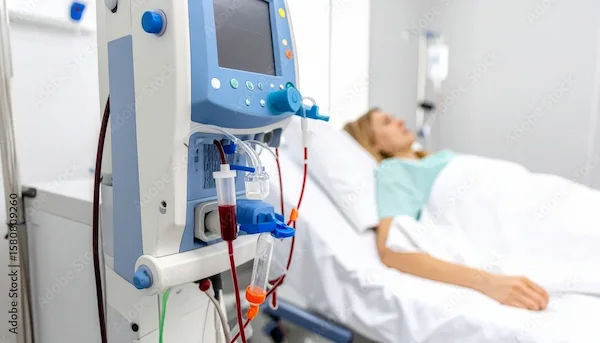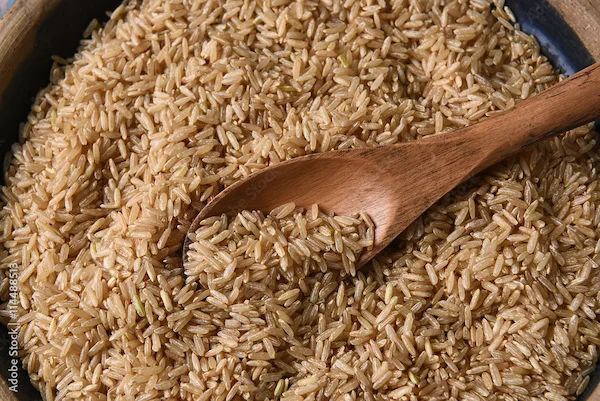How to Reduce Inflammation In The Body?
Explore how to reduce inflammation in the body which may be the result of different stressors exposed. Learn about its long term consequences, causes, symptoms, and preventive measures.

Written by Dr.Sonia Bhatt
Last updated on 3rd Jul, 2025
Inflammation is the body's natural response to injury or infection, but when it becomes chronic, it can lead to a host of health problems, such as heart disease, autoimmune disorders, and even cancer. Understanding how to reduce inflammation in the body, both in the short term and long term is key to improving overall health and preventing chronic conditions. In this article, we’ll explore effective strategies you can easily incorporate into your daily routine to help reduce inflammation and enhance your well-being.
What is Inflammation?
Inflammation is the body’s complex response to harmful factors like infections, damaged cells, or toxins. It’s part of the body’s defence system designed to heal and protect. There are two types of inflammation:
Acute Inflammation: This type of inflammation is short-term and usually occurs after an injury or infection. Symptoms include redness, swelling, heat, and pain.
Chronic Inflammation: When inflammation persists over time, it can become chronic. This is often due to long-term exposure to irritants such as poor diet, stress, or environmental toxins. Chronic inflammation is linked to many serious health conditions, including autoimmune diseases, cardiovascular problems, and cancer.
Chronic inflammation often doesn’t show symptoms until it causes serious health problems, making it important to manage it early for better long-term health.
Consult Top General Physicians
How to Reduce Inflammation in the Body
While inflammation is a necessary part of the body’s healing process, it’s important to manage it, especially when it becomes chronic. Here are some effective strategies for reducing inflammation.
1. Adopt an Anti-Inflammatory Diet
The food you eat has a big impact on inflammation in your body. Some foods can make inflammation worse, while others can help reduce it. By following an anti-inflammatory diet, you can naturally lower inflammation and boost your overall health.
Foods to Include in Your Diet:
Omega-3 Fatty Acids: Omega-3 fatty acids are essential fats that have strong anti-inflammatory effects. These can be found in fatty fish like salmon, mackerel, and sardines. If you don’t eat fish, flaxseeds, chia seeds, and walnuts are great plant-based sources of omega-3s.
Fruits and Vegetables: Fruits and vegetables are rich in antioxidants, vitamins, and minerals that help fight inflammation. Some of the best options include berries (such as blueberries and strawberries), tomatoes, spinach, kale, and broccoli. These foods help reduce oxidative stress, which contributes to chronic inflammation.
Healthy Fats: Healthy fats, like those found in olive oil, avocados, and nuts, can help lower inflammation. Olive oil, especially extra virgin olive oil, contains oleocanthal, a compound that mimics the action of nonsteroidal anti-inflammatory drugs (NSAIDs).
Spices and Herbs: Many spices and herbs are known for their anti-inflammatory properties. Turmeric, which contains curcumin, is particularly effective in reducing inflammation. Ginger, garlic, and cinnamon are also excellent additions to your diet for managing inflammation.
Foods to Avoid:
Processed Foods: Refined sugars, white bread, and packaged snacks can raise inflammation because they quickly increase blood sugar and insulin levels. The unhealthy fats in these foods also trigger inflammation in the body. Eating them too often can lead to long-term health problems.
Trans Fats: Trans fats found in fried foods, margarine, and baked goods are known to promote inflammation. These fats should be completely avoided to reduce chronic inflammation.
Excessive Alcohol and Red Meat: While drinking alcohol in moderation may have some health benefits, too much alcohol can increase inflammation. Similarly, red meat, especially processed meats like sausages and bacon, can raise inflammation levels. These meats contain chemicals like advanced glycation end products (AGEs) and preservatives such as nitrates and nitrites, which can trigger inflammation when eaten too often.
2. Regular Physical Activity
Exercise is one of the most effective ways to reduce inflammation in the body. Regular physical activity can help lower the levels of pro-inflammatory markers in the body, reduce body fat (which can contribute to inflammation), and improve overall health.
Exercise Recommendations:
Aerobic Exercise: Activities like walking, running, swimming, and cycling can help reduce inflammation by improving blood circulation and enhancing immune function.
Strength Training: Weightlifting and resistance training help increase muscle mass and reduce body fat, which can help lower inflammation levels.
Yoga and Stretching: Gentle stretching and yoga are not only effective for reducing stress but also help lower inflammation. These exercises promote blood flow and relaxation, both of which contribute to decreased inflammation.
3. Improve Sleep Quality
Sleep is vital for overall health and helps control inflammation in the body. Lack of sleep or poor-quality rest can raise inflammation levels. However, getting enough restful sleep helps regulate the immune system and reduce inflammation.
Tips for Better Sleep:
Stick to a regular sleep schedule, even on weekends.
Create a sleep-friendly environment by keeping your bedroom cool, dark, and quiet.
Avoid stimulants like caffeine and electronic devices before bedtime.
Practice relaxation techniques such as deep breathing or meditation to wind down.
4. Manage Stress Effectively
Long-term stress can increase inflammation and worsen health problems. When you're stressed, your body produces cortisol, a hormone that can raise inflammation if it's too high for an extended period. Finding ways to manage stress is essential for reducing inflammation and improving your overall health.
Effective Stress Management Techniques:
Mindfulness Meditation: Practicing mindfulness helps reduce the body’s stress response. Even simple mindfulness exercises, such as focusing on your breath or being aware of your surroundings, can help you lower inflammation.
Deep Breathing Exercises: Taking slow, deep breaths can activate the parasympathetic nervous system, helping to calm the body and reduce inflammation.
Journaling or Talking to Someone: Writing down your thoughts or talking to a friend can be a great way to relieve stress and reduce the body’s inflammatory response.
5. Incorporate Anti-Inflammatory Supplements
In addition to a healthy diet, certain supplements can support the body’s ability to fight inflammation. While it’s always best to get nutrients from food, supplements can be helpful when you’re looking for additional anti-inflammatory support.
Top Anti-Inflammatory Supplements:
Omega-3 Fatty Acids: If you don’t get enough omega-3s through your diet, consider taking fish oil supplements to help reduce inflammation.
Turmeric (Curcumin): Curcumin, the active compound in turmeric, has potent anti-inflammatory effects. You can find turmeric supplements or use turmeric powder in cooking.
Ginger: Ginger is another anti-inflammatory powerhouse. It can be taken as a supplement or brewed as a tea.
Vitamin D: Low levels of vitamin D have been associated with chronic inflammation. A vitamin D supplement can help improve immune function and reduce inflammation.
6. Medical Treatments for Inflammation
Lifestyle changes can greatly help reduce inflammation, but there are also medical treatments that can be used to manage chronic inflammation.
Nonsteroidal Anti-Inflammatory Drugs (NSAIDs): Drugs like ibuprofen and aspirin can reduce inflammation and provide temporary relief from pain. However, they should be used sparingly as long-term use can have adverse effects on the stomach and kidneys.
Corticosteroids: In more severe cases, doctors may prescribe corticosteroids to control inflammation. These drugs are potent but should be used under medical supervision due to potential side effects.
Biologics: Biologic drugs are often prescribed for autoimmune-related inflammation. These medications target specific parts of the immune system to help reduce inflammation. An example is adalimumab (Humira), which targets and blocks a protein called tumour necrosis factor (TNF), a substance in the body that causes inflammation in conditions like rheumatoid arthritis, Crohn's disease, and psoriasis. By blocking TNF, adalimumab helps to reduce inflammation and prevent damage to tissues.
7. Stay Hydrated
Water helps reduce inflammation by supporting the body’s natural detoxification process. When you're hydrated, your kidneys work more efficiently to remove waste and toxins, which can contribute to inflammation. Proper hydration also helps maintain healthy circulation, allowing nutrients and oxygen to reach tissues more effectively, which can reduce swelling and discomfort. Additionally, water helps keep the cells in your body functioning properly, supporting the immune system and preventing excessive inflammatory responses.
Conclusion
Reducing inflammation in the body is important for staying healthy and preventing long-term diseases. By eating an anti-inflammatory diet, exercising regularly, managing stress, and getting enough sleep, you can lower inflammation and feel better overall. If needed, talk to your doctor about supplements or other treatments that can help manage inflammation even more effectively.
Consult Top General Physicians
Consult Top General Physicians

Dr. M L Ezhilarasan
General Practitioner
6 Years • MBBS
Visakhapatnam
Apollo 24|7 Clinic - Andhra Pradesh, Visakhapatnam

Dr. Anand Ravi
General Physician
2 Years • MBBS
Bengaluru
PRESTIGE SHANTHINIKETAN - SOCIETY CLINIC, Bengaluru

Dr Aakash Andgi
General Physician/ Internal Medicine Specialist
9 Years • MBBS MD
Bengaluru
Apollo Clinic, JP nagar, Bengaluru

Dr Syed Mateen Pasha
General Physician
2 Years • MBBS
Bengaluru
PRESTIGE SHANTHINIKETAN - SOCIETY CLINIC, Bengaluru

Dr. Ashita Kuruvilla
General Practitioner
6 Years • MBBS
Kolkata
KVC CLINIC, Kolkata
Consult Top General Physicians

Dr. M L Ezhilarasan
General Practitioner
6 Years • MBBS
Visakhapatnam
Apollo 24|7 Clinic - Andhra Pradesh, Visakhapatnam

Dr. Anand Ravi
General Physician
2 Years • MBBS
Bengaluru
PRESTIGE SHANTHINIKETAN - SOCIETY CLINIC, Bengaluru

Dr Aakash Andgi
General Physician/ Internal Medicine Specialist
9 Years • MBBS MD
Bengaluru
Apollo Clinic, JP nagar, Bengaluru

Dr Syed Mateen Pasha
General Physician
2 Years • MBBS
Bengaluru
PRESTIGE SHANTHINIKETAN - SOCIETY CLINIC, Bengaluru

Dr. Ashita Kuruvilla
General Practitioner
6 Years • MBBS
Kolkata
KVC CLINIC, Kolkata




